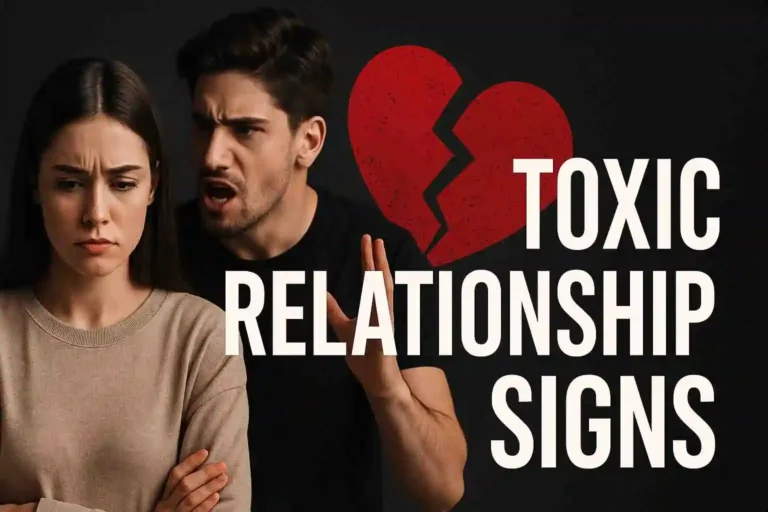10 Silent Relationship Killers That Secretly Hurt Love
Not all relationship problems come from big fights or betrayal. Sometimes, it’s the little things we ignore that slowly destroy the connection between partners. These are called silent relationship killers — behaviors that seem harmless but silently damage trust, communication, and emotional closeness over time.
If you’re wondering why your relationship feels off even though no major problems are happening, these small habits might be the reason. Let’s break them down in simple terms, with real-life examples and high-value relationship advice.
Here are 10 silent relationship killers that can ruin a bond if left unchecked:
1. Avoiding Difficult Conversations
What it is: This is when one or both partners avoid talking about serious or emotional topics because they feel uncomfortable.
Why it’s harmful: It creates emotional distance. The more you avoid real talks, the less connected you feel. It can also lead to resentment.
Example: Sarah didn’t want to tell her boyfriend that she felt unsupported during her job search. She kept it inside for months. Eventually, she started feeling alone in the relationship.
2. Using Sarcasm Too Often
What it is: Joking in a way that sounds mean or passive-aggressive, even if it’s meant to be funny.
Why it’s harmful: Sarcasm may seem playful, but it often hides criticism. Over time, it can chip away at your partner’s self-esteem.
Example: Mark often joked, You’re always late, surprise surprise. His girlfriend laughed at first but later started feeling judged and unappreciated.
3. Keeping Score
What it is: Tracking every good thing you do and comparing it to what your partner does or doesn’t do.
Why it’s harmful: Love is not a competition. Keeping score creates bitterness and turns your relationship into a battle instead of a partnership.
Example: Jake felt like he always did the dishes and brought it up every time they argued. His partner felt attacked instead of appreciated.
4. Always Being on Your Phone
What it is: Constantly checking your phone during meals, conversations, or quality time.
Why it’s harmful: It makes your partner feel unimportant. This behavior can create emotional distance and hurt connection.
Example: Emma would scroll Instagram every night in bed. Her boyfriend stopped trying to talk to her because he felt ignored.
5. Not Listening Properly
What it is: Pretending to listen or only half-listening while your partner talks.
Why it’s harmful: It sends the message that their thoughts and feelings don’t matter. Over time, they may stop sharing altogether.
Example: When Mia vented about her stressful day, Tom nodded while watching TV. She later said, You never really hear me.
6. Unspoken Expectations
What it is: Expecting your partner to know what you want without clearly saying it.
Why it’s harmful: It leads to disappointment and confusion. No one can read your mind, even if they love you.
Example: Lisa expected her husband to plan something for her birthday but didn’t say anything. When he didn’t, she got upset, and he had no idea why.
7. Lack of Appreciation
What it is: Taking your partner for granted or rarely showing gratitude.
Why it’s harmful: Everyone wants to feel valued. A simple thank you goes a long way in making someone feel loved.
Example: Raj cooked dinner every day, but his girlfriend never thanked him. Eventually, he felt unimportant and stopped trying.
8. Bringing Up the Past Constantly
What it is: Using old mistakes during new arguments.
Why it’s harmful: It shows that you haven’t truly forgiven. It also prevents the relationship from moving forward.
Example: Every time they argued, Nina brought up a mistake Alex made years ago. This made it hard for him to trust that she had forgiven him.
9. Unequal Effort
What it is: When one person keeps giving and the other only takes — emotionally, physically, or mentally.
Why it’s harmful: It creates a one-sided dynamic where one partner feels drained and the other feels entitled.
Example: Julia always planned dates, made time to talk, and solved problems, while her partner barely contributed. Eventually, she felt like she was in the relationship alone.
10. Avoiding Affection
What it is: Not showing physical or emotional affection regularly.
Why it’s harmful: Affection builds connection. Without it, the relationship can feel cold and distant.
Example: After the honeymoon phase, Sam stopped hugging or kissing his wife. She felt unwanted, even though he still loved her.
Final Thoughts: Small Habits, Big Impact
Most relationships don’t fall apart overnight. They slowly fade because of small behaviors that go unchecked. These silent relationship killers might seem harmless at first, but they silently break trust, create emotional distance, and cause disconnection.
The good news? These habits can be changed with awareness and effort. Start by having honest conversations, showing appreciation, and being present. Even small changes can lead to big improvements.
Remember, building a strong relationship isn’t about being perfect — it’s about being present, respectful, and willing to grow together.
Share your favorite moments with us on Instagram!
Don’t keep this to yourself—share it with a friend!
























